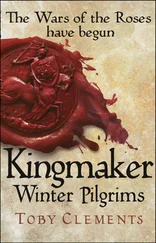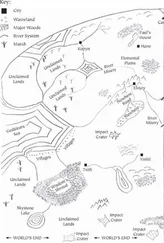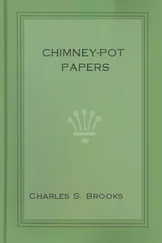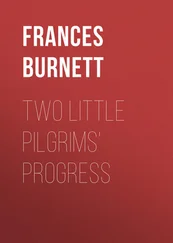Charles Brooks - Hints to Pilgrims
Здесь есть возможность читать онлайн «Charles Brooks - Hints to Pilgrims» — ознакомительный отрывок электронной книги совершенно бесплатно, а после прочтения отрывка купить полную версию. В некоторых случаях можно слушать аудио, скачать через торрент в формате fb2 и присутствует краткое содержание. Жанр: foreign_antique, foreign_prose, на английском языке. Описание произведения, (предисловие) а так же отзывы посетителей доступны на портале библиотеки ЛибКат.
- Название:Hints to Pilgrims
- Автор:
- Жанр:
- Год:неизвестен
- ISBN:нет данных
- Рейтинг книги:3 / 5. Голосов: 1
-
Избранное:Добавить в избранное
- Отзывы:
-
Ваша оценка:
- 60
- 1
- 2
- 3
- 4
- 5
Hints to Pilgrims: краткое содержание, описание и аннотация
Предлагаем к чтению аннотацию, описание, краткое содержание или предисловие (зависит от того, что написал сам автор книги «Hints to Pilgrims»). Если вы не нашли необходимую информацию о книге — напишите в комментариях, мы постараемся отыскать её.
Hints to Pilgrims — читать онлайн ознакомительный отрывок
Ниже представлен текст книги, разбитый по страницам. Система сохранения места последней прочитанной страницы, позволяет с удобством читать онлайн бесплатно книгу «Hints to Pilgrims», без необходимости каждый раз заново искать на чём Вы остановились. Поставьте закладку, и сможете в любой момент перейти на страницу, на которой закончили чтение.
Интервал:
Закладка:
Or perhaps we built a fort upon the beach before the fire. It was a pretty warfare between ship and fort, with marbles used shot and shot in turn. A lucky marble toppled the checkerboard off its balance and wrecked the ship. The sailors, after scrambling in the water, put to shore on flat blocks from the boat deck and were held as prisoners until supper, in the dungeons of the fort. It was in the sitting-room that we played these games, under the family's feet. They moved above our sport like a race of tolerant giants; but when callers came, we were brushed to the rear of the house.
Spools were men. Thread was their short and subsidiary use. Their larger life was given to our armies. We had several hundred of them threaded on long strings on the closet-hooks. But if a great campaign was planned – if the Plains of Abraham were to be stormed or Cornwallis captured – our recruiting sergeants rummaged in the drawers of the sewing-machine for any spool that had escaped the draft. Or we peeked into mother's work-box, and if a spool was almost empty, we suddenly became anxious about our buttons. Sometimes, when a great spool was needed for a general, mother wound the thread upon a piece of cardboard. General Grant had carried black silk. Napoleon had been used on trouser-patches. And my grandmother and a half-dozen aunts and elder cousins did their bit and plied their needles for the war. In this regard grandfather was a slacker, but he directed the battle from the sofa with his crutch.
Toothpicks were guns. Every soldier had a gun. If he was hit by a marble in the battle and the toothpick remained in place, he was only wounded; but he was dead if the toothpick fell out. Of each two men wounded, by Hague Convention, one recovered for the next engagement.
Of course we had other toys. Lead soldiers in cocked hats came down the chimney and were marshaled in the Christmas dawn. A whole Continental Army lay in paper sheets, to be cut out with scissors. A steam engine with a coil of springs and key furnished several rainy holidays. A red wheel-barrow supplied a short fury of enjoyment. There were sleds and skates, and a printing press on which we printed the milkman's tickets. The memory still lingers that five cents, in those cheap days, bought a pint of cream. There was, also, a castle with a princess at a window. Was there no prince to climb her trellis and bear her off beneath the moon? It had happened so in Astolat. The princes of the gorgeous East had wooed, also, in such a fashion. Or perhaps this was the very castle that the wicked Kazrac lifted across the Chinese mountains in the night, cheating Aladdin of his bride. It was a rather clever idea, as things seem now in this time of general shortage, to steal a lady, house and all, not forgetting the cook and laundress. But one day a little girl with dark hair smiled at me from next door and gave me a Christmas cake, and in my dreams thereafter she became the princess in my castle.
We had stone blocks with arches and round columns that were too delicate for the hazard of siege and battle. Once, when a playmate had scarlet fever, we lent them to him for his convalescence. Afterwards, against contagion, we left them for a month under a bush in the side yard. Every afternoon we wet them with a garden hose. Did not Noah's flood purify the world? It would be a stout microbe, we thought, that could survive the deluge. At last we lifted out the blocks at arm's length. We smelled them for any lurking fever. They were damp to the nose and smelled like the cement under the back porch. But the contagion had vanished like Noah's wicked neighbors.
But store toys always broke. Wheels came off. Springs were snapped. Even the princess faded at her castle window.
Sometimes a toy, when it was broken, arrived at a larger usefulness. Although I would not willingly forget my velocipede in its first gay youth, my memory of sharpest pleasure reverts to its later days, when one of its rear wheels was gone. It had been jammed in an accident against the piano. It has escaped me whether the piano survived the jolt; but the velocipede was in ruins. When the wheel came off the brewery wagon before our house and the kegs rolled here and there, the wreckage was hardly so complete. Three spokes were broken and the hub was cracked. At first, it had seemed that the day of my velocipede was done. We laid it on its side and tied the hub with rags. It looked like a jaw with tooth-ache. Then we thought of the old baby-carriage in the storeroom. Perhaps a transfusion of wheels was possible. We conveyed upstairs a hammer and a saw. It was a wobbling and impossible experiment. But at the top of the house there was a kind of race-track around the four posts of the attic. With three wheels complete, we had been forced to ride with caution at the turns or be pitched against the sloping rafters. We now discovered that a missing wheel gave the necessary tilt for speed. I do not recall that the pedals worked. We legged it on both sides. Ten times around was a race; and the audience sat on the ladder to the roof and held a watch with a second-hand for records.
Ours was a roof that was flat in the center. On winter days, when snow would pack, we pelted the friendly milkman. Ours, also, was a cellar that was lost in darkened mazes. A blind area off the laundry, where the pantry had been built above, seemed to be the opening of a cavern. And we shuddered at the sights that must meet the candle of the furnaceman when he closed the draught at bedtime.
Abandoned furniture had uses beyond a first intention. A folding-bed of ours closed to about the shape of a piano. When the springs and mattress were removed it was a house with a window at the end where a wooden flap let down. Here sat the Prisoner of Chillon, with a clothes-line on his ankle. A pile of old furniture in the attic, covered with a cloth, became at twilight a range of mountains with a gloomy valley at the back. I still believe – for so does fancy wanton with my thoughts – that Aladdin's cave opens beneath those walnut bed-posts, that the cavern of jewels needs but a dusty search on hands and knees. The old house, alas, has come to foreign use. Does no one now climb the attic steps? Has time worn down the awful Caucasus? No longer is there children's laughter on the stairs. The echo of their feet sleeps at last in the common day.
Nor must furniture, of necessity, be discarded. We dived from the footboard of our bed into a surf of pillows. We climbed its headboard like a mast, and looked for pirates on the sea. A sewing-table with legs folded flat was a sled upon the stairs. Must I do more than hint that two bed-slats make a pair of stilts, and that one may tilt like King Arthur with the wash-poles? Or who shall fix a narrow use for the laundry tubs, or put a limit on the coal-hole? And step-ladders! There are persons who consider a step-ladder as a menial. This is an injustice to a giddy creature that needs but a holiday to show its metal. On Thursday afternoons, when the cook was out, you would never know it for the same thin creature that goes on work-days with a pail and cleans the windows. It is a tower, a shining lighthouse, a crowded grandstand, a circus, a ladder to the moon.
But perhaps, my dear young sir, you are so lucky as to possess a smaller and inferior brother who frets with ridicule. He is a toy to be desired above a red velocipede. I offer you a hint. Print upon a paper in bold, plain letters – sucking the lead for extra blackness – that he is afraid of the dark, that he likes the girls, that he is a butter-fingers at baseball and teacher's pet and otherwise contemptible. Paste the paper inside the glass of the bookcase, so that the insult shows. Then lock the door and hide the key. Let him gaze at this placard of his weakness during a rainy afternoon. But I caution you to secure the keys of all similar glass doors – of the china closet, of the other bookcase, of the knick-knack cabinet. Let him stew in his iniquity without chance of retaliation.
Читать дальшеИнтервал:
Закладка:
Похожие книги на «Hints to Pilgrims»
Представляем Вашему вниманию похожие книги на «Hints to Pilgrims» списком для выбора. Мы отобрали схожую по названию и смыслу литературу в надежде предоставить читателям больше вариантов отыскать новые, интересные, ещё непрочитанные произведения.
Обсуждение, отзывы о книге «Hints to Pilgrims» и просто собственные мнения читателей. Оставьте ваши комментарии, напишите, что Вы думаете о произведении, его смысле или главных героях. Укажите что конкретно понравилось, а что нет, и почему Вы так считаете.












